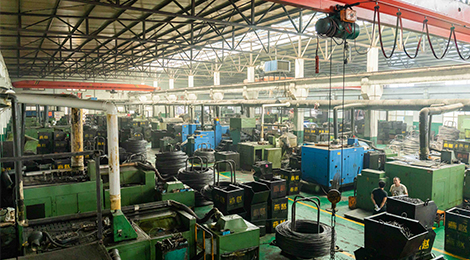china plastic bolts and nuts
វិច្ឆិកា . 18, 2024 22:09 Back to list
china plastic bolts and nuts
The Evolution and Impact of Plastic Bolts and Nuts in China
In the evolving landscape of manufacturing and construction, plastic components have emerged as viable alternatives to traditional metal fittings. Among these, plastic bolts and nuts have gained significant traction, especially in China, a country renowned for its vast manufacturing prowess. This article delves into the rise of plastic bolts and nuts in China, exploring their applications, advantages, and the challenges faced in this dynamic sector.
The Rise of Plastic Fasteners
China's rapid industrialization and technological advancements have fostered an environment conducive to innovation in materials. Plastic bolts and nuts are increasingly used in various applications, including electronics, automotive, and construction, where lightweight and corrosion-resistant materials are essential. These fasteners are typically made from high-strength polymers, such as nylon, which offer excellent durability and performance characteristics.
The demand for plastic bolts and nuts has surged due to industries increasingly focusing on lightweight materials to enhance fuel efficiency and reduce costs. For instance, in the automotive sector, manufacturers are replacing metal components with plastic alternatives to lower vehicle weight, improve fuel economy, and meet stringent emissions regulations. Similarly, in electronics, plastic fasteners are preferred for their insulating properties, which prevent electrical conductivity and enhance safety.
Advantages of Plastic Bolts and Nuts
The adoption of plastic bolts and nuts provides numerous advantages over their metal counterparts. One of the primary benefits is their resistance to corrosion, which is especially crucial in environments exposed to moisture and chemicals. Unlike metal, plastic doesn't rust or corrode, ensuring a longer lifespan and reducing maintenance costs.
china plastic bolts and nuts

Furthermore, plastic fasteners are lightweight, which significantly decreases the overall weight of the final product. This is particularly beneficial in the aerospace and automotive sectors, where weight reduction translates directly to fuel efficiency and improved performance. Additionally, the manufacturing process for plastic components often involves less energy compared to metal, contributing to a more sustainable production cycle.
Plastic bolts and nuts also offer a level of design flexibility that is hard to match. They can be molded into intricate shapes that are often more efficient for specific applications. For example, manufacturers can create fasteners with integrated features, such as locking mechanisms, that enhance their performance in specific environments.
Challenges and Considerations
Despite their advantages, the rise of plastic bolts and nuts is not without challenges. One significant concern is the temperature tolerance and mechanical strength of plastic compared to metal. While advances in materials science are continuously improving these characteristics, there are still limitations regarding high-temperature applications. This restricts the use of plastic fasteners in certain industries, such as heavy machinery and aerospace, where extreme conditions are commonplace.
Moreover, the environmental impact of plastic waste cannot be overlooked. Although many plastic materials can be recycled, the recycling rates are often low due to the stigma surrounding plastic. As such, manufacturers are increasingly seeking alternative solutions, such as biodegradable plastics, to mitigate environmental impact while still providing the benefits of lightweight and corrosion-resistant fasteners.
Conclusion
The development and implementation of plastic bolts and nuts in China represent a significant trend in modern manufacturing. As industries seek to innovate and improve performance through lightweight materials, plastic fasteners are becoming an integral part of the production process. While challenges such as temperature limitations and environmental concerns persist, ongoing advancements in material science promise to enhance the capabilities and applications of plastic bolts and nuts. With the right balance of innovation and sustainability, China’s position as a leader in manufacturing could very well be synonymous with the future of plastic fasteners.
Latest news
-
Premium Phosphated Drywall Screws Supplier | Durable, Rust-Resistant
NewsAug.27,2025
-
Reliable Wire Bolts Suppliers | Quality Zinc Plated Fasteners
NewsAug.26,2025
-
Wire Bolts Suppliers: Durable & Reliable Fasteners for Every Project
NewsAug.25,2025
-
Premium Cabinet Bolts Supplier | Wholesale & Custom Solutions
NewsAug.24,2025
-
Reliable Axle Nuts Supplier | Quality & Precision Fasteners
NewsAug.23,2025
-
Durable Bolts for Lawn Mower Handle - Top Supplier & Manufacturer
NewsAug.22,2025
